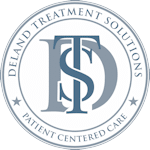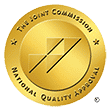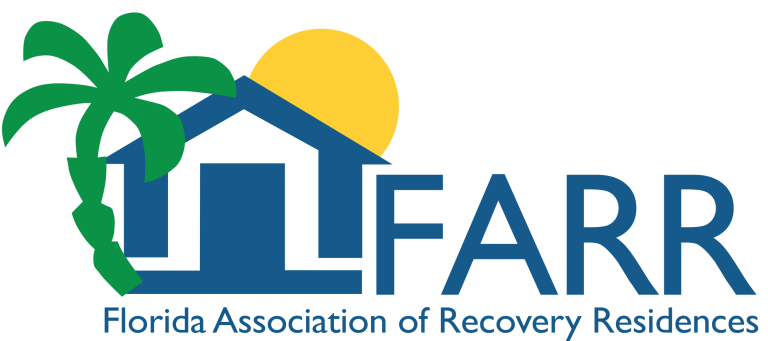Schizoaffective disorder is a mental illness that affects your feelings and thoughts. This section describes the condition, probable causes, and treatments. This material is intended for persons in USA aged 18 and above who suffer from schizoaffective disorder. It is also intended for their caregivers, friends, and family, as well as anybody with an interest in this subject.
What is Schizoaffective Disorder?
Schizoaffective disorder is a mental health condition in people who exhibit symptoms of both schizophrenia and a mood disorder, such as bipolar disorder or depression. This implies that patients with schizoaffective disorder may struggle to discriminate between what is real and what is not (psychosis), as well as endure severe mood fluctuations.
This combination can be difficult, but with the right therapy, people with schizophrenia can control their symptoms and live productive lives.
The specific cause of schizoaffective disease is unknown, however, it is most likely a mix of genetic, brain chemistry, and environmental influences. There is no cure for schizoaffective disease, although therapy can assist with symptoms and quality of life. Medication and therapy are frequently used in tandem for treatment.
What are the Types of Schizoaffective Disorder?
Schizoaffective disorder is a mental condition that involves symptoms of schizophrenia and a mood disorder, such as bipolar disorder or depression. Schizoaffective disorder is classified into two basic types:
Schizoaffective bipolar disorder is distinguished by periods of mania (extreme highs) and depression (extreme lows), as well as indications of schizophrenia.
Schizoaffective depressive type: This type is distinguished by bouts of depression as well as schizophrenia-related symptoms.
It is crucial to remember that schizoaffective disorder is a complicated condition with symptoms that differ from person to person.
Support is available—you've taken the first step by starting your research.
Lorem ipsum dolor sit amet, consectetur adipiscing elit. Ut elit tellus, luctus nec ullamcorper mattis, pulvinar dapibus leo.
You can also start by checking your insurance coverage online.
Symptoms of Schizoaffective Disorder

Psychosis
Hallucinations: Seeing, hearing, smelling, tasting, or feeling things that aren’t there.
Delusions: False beliefs that are held with strong conviction, even in the face of contradictory evidence.
Mood disorders
Mania: Abnormally elevated or irritable mood, racing thoughts, increased energy, decreased need for sleep, risky behavior.
Depression: Feeling sad, hopeless, and worthless; loss of interest or pleasure in activities; changes in appetite or sleep; difficulty concentrating; thoughts of death or suicide.
Other symptoms:
Disorganized thinking and speech: Difficulty arranging thoughts or expressing them clearly.
Disorganized conduct is characterized by difficulty planning and carrying out activities, as well as acting impulsively or weirdly.
- A withdrawal from social activities and connections.
- Lack of motivation causes difficulty starting or finishing tasks.
- Poor hygiene is defined as failing to maintain personal hygiene.
If you are experiencing any of these symptoms, see a mental health professional for a diagnosis and treatment. People with schizoaffective disorder benefit from early diagnosis and treatment, which can improve their long-term disorders.
Contact Solutions Healthcare
Battling with Drug and Alcohol Addition? Remember, you are not alone and we are here to help you!
Causes Schizoaffective Disorder?
Researchers believe schizoaffective disorder may occur for several reasons, including:
Genetics: Having a family history of schizoaffective disorder, schizophrenia, or bipolar disorder increases your risk.
Brain chemicals: Imbalances in brain neurotransmitters such as dopamine, serotonin, and norepinephrine may play a role.
Environmental factors: Stressful life experiences, childhood trauma, or drug abuse may increase your risk.
Researchers are currently investigating how these elements interact to develop schizoaffective disorder.
Risk Factors for Schizoaffective Disorder
The specific etiology of schizoaffective disorder is unclear, however, various risk factors might raise a person’s chances of acquiring it. This includes:
- Family history of mental illness.
- Substance Abuse
- Brain Chemistry
- Brain abnormalities
- Having problems before birth.
- Child abuse or neglect.
It’s crucial to remember that having one or more of these risk factors does not guarantee you’ll develop schizoaffective disorder.
Complications of Schizoaffective Disorder
Schizoaffective disorder is a mental condition that combines the symptoms of schizophrenia with mood disorders like bipolar disorder or depression. The complications of schizoaffective disorder can be severe and affect many aspects of a person’s life.
Some of the most common complications associated with schizoaffective disorder are:
Substance abuse: People with schizoaffective disorder are more likely to abuse alcohol and drugs.
Social isolation: The symptoms of schizoaffective disorder might make it difficult to maintain connections with loved ones.
Suicide: People with schizoaffective disorder have a higher risk of suicide.
Poverty and homelessness: The symptoms of schizoaffective disorder might make it difficult to find work or keep a residence.
Physical health problems: People with schizoaffective disorder are more likely to suffer from obesity, heart disease, and diabetes.
5 Common Schizoaffective Disorder Symptoms
Schizoaffective disorder is a mental condition that has characteristics of both schizophrenia and bipolar disorder. Here are five typical symptoms of schizoaffective disorder:
Hallucinations: People with schizoaffective disorder may perceive, hear, or feel things that do not exist. These hallucinations can be quite scary and disturbing.
Delusions: Delusions are erroneous beliefs that a person believes despite being confronted with evidence to the contrary. People with schizoaffective illness may believe they are important, are being persecuted, or are under the power of others.
Disorganized thinking and speech: People with disorders may struggle to arrange their ideas and talk in an intelligible manner. Their speech might be rambling or move from issue to topic.
Mood swings: People with schizoaffective disorder have significant mood fluctuations, including mania and sadness. A manic episode is characterized by excessively elevated energy, mood, and activity levels.
Changes in behavior: People with schizoaffective disorder may retreat from social activities, neglect cleanliness, or struggle to care for themselves. They may also exhibit aggression or violence.
It’s crucial to remember that schizoaffective disorder can vary widely from person to person. Some people may only suffer a few symptoms, while others may exhibit all of the symptoms described above. The intensity of the symptoms might differ from person to person.
Schizoaffective Disorder Treatment
Schizoaffective disorder is a mental health illness characterized by symptoms of schizophrenia plus a mood disorder, such as bipolar disorder or major depressive disorder. Schizoaffective disorder treatment normally involves a mix of medication and psychotherapy.
Medication and psychotherapy are the two basic approaches to treating schizoaffective disorder.
Medication
Antipsychotics: These are the main medications used to treat schizoaffective disorder. They assist in minimizing psychotic symptoms, including delusions and hallucinations.
Mood stabilizers: These drugs can help prevent or alleviate mood episodes like mania or sadness.
Antidepressants: These drugs can help alleviate depressive symptoms.
Psychotherapy
Individual Therapy: Individual treatment can assist patients with schizoaffective disorder in understanding their condition, developing coping techniques, and enhancing their social and communication skills.
Family therapy: This sort of treatment can assist family members in understanding and supporting a loved one with schizoaffective disorder.
Group therapy: This style of treatment offers people with schizoaffective disorder a secure and supportive atmosphere in which to share their experiences and learn from one another.
Individuals with schizoaffective disorder can manage their condition in several ways, including:
- Getting enough sleep.
- Eating a nutritious diet
- Exercise frequently and avoid alcohol and drugs.
- Joining a support group.
Many people suffering from schizoaffective disorder may have productive and satisfying lives with the right therapy.
Effective Treatment Approaches for Schizoaffective Disorder

Schizoaffective disorder can be effectively managed with a combination of medication and therapy. While there is no cure, treatment can help you regain control of your life and experience a greater sense of well-being. Don’t hesitate to reach out to a mental health professional today to discuss your treatment options and take the first step on your path to recovery.
If you’re looking for treatment for schizoaffective disorder, Deland Treatment Solutions may be a good option. Consider contacting them at (386) 866-8689 to learn more about their program.





























